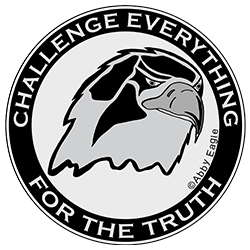
Principles and guidelines for handling potential conflict in a group, especially one that discusses current affairs, politics and religion. Phone 07 5562 5718 or send an email to book a free 20 minute telephone or Skype session with Abby Eagle. NLP Hypnotherapy and Meditation. Gold Coast, Robina, Australia. Online NLP Coaching sessions on Skype and by phone also available.
Ground Rules for Handling Conflict in a Group Using NLP and Neuro Semantics
Reference: Excerpted from the Group and Team Coaching manual © L. Michael Hall and used with kind permission.
For difficult conversations we need some basic ground rules. These are important for the meetings that we need to have in order to address problems or potential problems. The ground rules offer us a protocol as an agreement about how we will treat each other as we communicate and make decisions. These collaborative ground rules are guidelines about how to work through the differences to find win/win possibilities.
1) Respect
- We will be respectful by looking at each other when talking and using appropriate tone.
- We will avoid behaviors that members consider disrespectful.
- We will deal directly with a matter and a person; no triangling.
- We will distinguish person from behavior; no personalizing or personal attacks.
2) Fairness
- We will be fair about amount of time each speaks.
- We will take turns in speaking and not dominate a conversation or talk over another.
- Deal directly with the person and the matter.
- We will balance advocacy and inquiry.
- We will dialogue to understand each other.
- We will establish a relevance frame together and hold to it.
- Engage the group in problem-solving.
3) Listening
- We will seek first to understand and then to be understood.
- Dialogue for the purpose of understanding each other so that we can then work through the conflict from a position of empathy.
- We will listen for the purpose of understanding, not finding fault.
- We will demonstrate understand by repeating our understanding to the other's satisfaction. Repeating each person's point to that person's
satisfaction to demonstrate understanding.
- We will reveal our assumptions as we advocate our positions.
4) Openness
- We will be open to each person's point of view and position by asking and listening.
- We will be open in sharing information and not hoarding information from each other.
- We will openly communicate and make decisions together.
- We can explore each other's reasoning and assumptions.
- We will be open to having our own reasoning and assumptions explored.
- Explore each other's reasoning and assumptions and be open to having my own reasoning and assumptions explored.
- We will exchange "but" for "and" as much as possible.
- We will use the Cognitive Distortion list as a checklist.
5) Confidentiality
- We will keep confidential the things we designate as confidential.
- Confidentiality: what is said here, stays here. We do not use against each other.
- The processes / experiences leading to our conclusions will stay here.
6) Committed and Responsible
- We will be responsible for our commitment to each other, to be present and to be loyal.
- We will be responsible to each other for what we have promised.
- Accept full responsibility for what one says and does (no blaming).
- We will speaking using "I" - I think, I feel, I want, I believe, etc. rather than saying, "You make me..."
7) Trust
- We will trust that what we say is what we mean.
- We will give each other permission to challenge each person without responding with ill-will or negative states.
- We give others the right to hold us accountable for following-through on our word.
- We will manage our own states and take a time-out if we need to.
8) Discipline
- Take a time-out regularly (every 30 minutes maximally).
- If get angry, fearful, upset, etc., say so, manage state, and either take a time-out or continue.
- Ask someone to mediate the process if people are not following the rules.
- Self-managing: we seek to release more and more responsibility to the group so that we become self-managing as a team.
9) Holding responsibility and Accountability
- Clarify who is responsible for what actions.
- Agree upon a time-frame: milestones along the way.
- Set up checking process- who? When? How?
- Agree to be wiling to be challenged.
- Set up consequences if fail to follow-through
- Establish Plan B, Plan C in case responsible is not fulfilled.
- Agree to communicate if emergencies or problems arise.
10) Preparing a Group for Tolerance - Acceptance
- De-sensitize to triggering statements of others. Use the Semantic Reactivity Pattern to defuse and desensitize yourself and others so that triggering statements that people offer will lose their punch.
- Identity conflict escalating patterns. Identify the cognitive distortions that turn up the misery and create unnecessary conflict. Use the Cognitive Distortions list.
- Use Tension Reduction techniques. Use Defusing Skills, relaxation, state breaks, etc.
- Qualify or Texture the conflict. Meta-State the conflict with calmness, alertness, respect, compassion, etc.
11) Ground Rules of what we will not do:
- Get physical: hit, slap, tackle, etc.
- Snipe, zap, scorn, or humiliate to displace our negative emotions on others.
- Use sarcastic language, dismissive language, put downs.
- Monologues.
- Talking over another person.
- Jumping-in on the end of a another's sentence. Instead, take a breath and give a moment of silence.
Reference: Excerpted from the Group and Team Coaching manual © L. Michael Hall and used with kind permission.
Your contribution to this article is welcomed so please take a moment to leave your comments below. And if you are interested in NLP Coaching then please contact Abby Eagle using the contact form on this page.
Share With Friends
| DISCUSSION GROUPS | |
|---|---|
 |
|
| NLP Future Selfing | |
| NLP, Hypnotherapy & Meditation | |
| NLP Peace Mapping | |
| Facebook Discussion Group | |
| The secret of high achievers |
|---|
 |
| How to build a powerful team |
 |
| Learn the NLP Meta Model |
 |
| How I stopped drinking alcohol. |
 |


